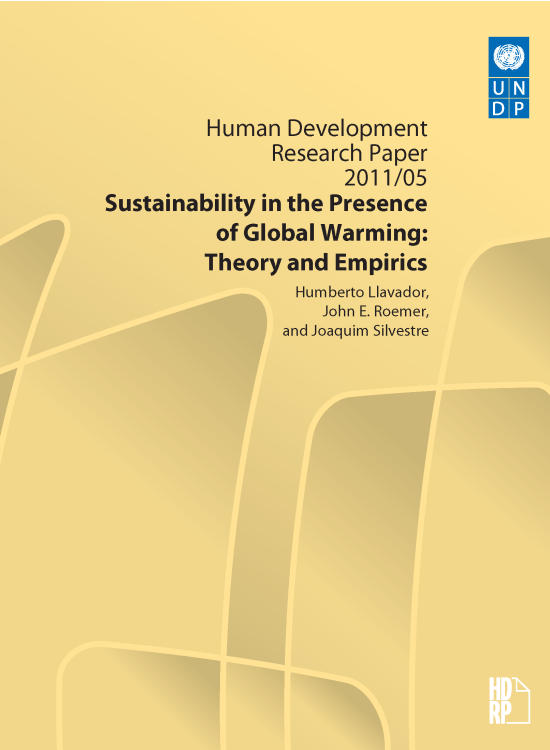Sustainability in the Presence of Global Warming
Theory and Empirics

UNDP (United Nations Development Programme). 2011. Sustainability in the Presence of Global Warming: Theory and Empirics. New York.
Sustainability in the Presence of Global Warming
Theory and Empirics
Mankind must cooperate to reduce greenhouse gas (GHG) emissions to prevent a catastrophic rise in global temperature, with its concomitant effects on sea level, rainfall, drought, storms, agricultural production, and human migration. What is the appropriate way of evaluating how the costs of reducing GHG emissions should be shared across the present and future generations, and within the next few generations, across regions of the world? How should the intergenerational and inter-regional resource allocation be regulated? These are normative questions: their answers depend upon the theory of distributive justice held. We argue, with respect to the intergenerational question, for a theory of justice that is motivated by the concept of sustainability. With respect to the inter-regional issue, we do not take a fundamentally normative approach, but rather a political approach, where we propose what we believe is a politically acceptable solution to the bargaining problem that is at present taking place between major national actors (think: the US and China) concerning the reductions in GHGs that should be implemented. One reason for the difference in our approaches to these two problems is that future generations cannot bargain with us, and so we should take an ethical posture towards them. Major nations of the world, however, are actively engaged in arguing and bargaining over the second problem, and our role with respect to these negotiations is to behave like an arbitrator and propose what (we believe) is a mutually acceptable solution.

